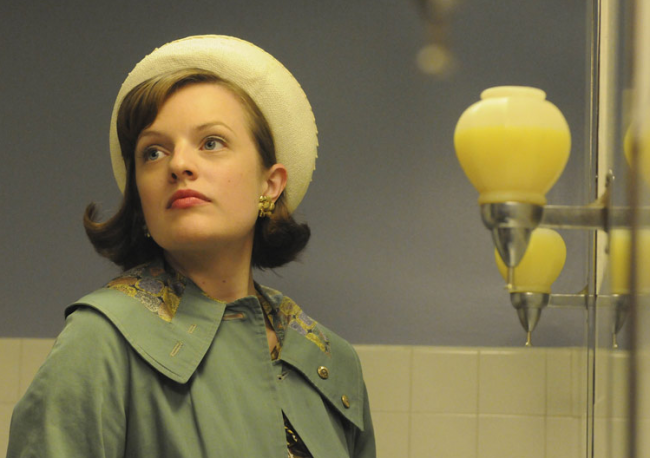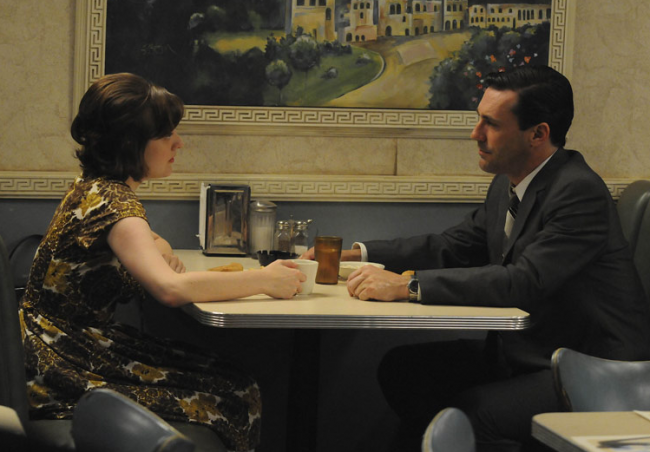Swami Deva Pramada Quits This Only World
“A founding member of rock group Electric Light Orchestra was killed when a giant bale of hay tumbled down a hill and crashed onto his van in the UK.” The cellist, Mike Edwards, a two-year veteran of the band, underwent a name change when he came to believe in the teachings of Osho (“There is no God other than life itself,” etc.). And now he’s dead.
Who Is Britain's Ugliest Woman? All Of Them!

The Daily Mail almost seems to take joy in the selection of Knifecrime Island’s ladies as the planet’s most repulsive.
The nation’s females were lambasted when asked which country had the ugliest women in an international poll. Votes poured in, with people from around the globe eager to point out how overweight, unladylike, and generally foul British women are. Major complaints centred around how many are ‘rude’, ‘drink pints of beer like men’ and ‘end up drunk in the gutter’. The UK’s (not so) fairer sex were also accused of unashamedly breaking wind and belching in public, of letting their fat hang out, were smothered in ‘bad tattoos’ and committed crimes against fashion by proudly sporting ‘too-tight bikinis and football shirts’.
Now, to be sure, the pulchritude of Britain’s lasses is rarely lauded in story or song, and there have been several scientific studies aimed specifically at attempting to ascertain whether or not British beauty even exists. (The discovery of Keira Knightley seemed promising, but the lack of any further breakthroughs have left those in the field to despair that actual proof will ever emerge.) That said, perhaps this survey is biased: The paper doesn’t say much about the respondents, but it’s quite possible that they are all deeply averse to being sworn at, stabbed, vomited on and glassed goodbye by a woman who rarely washes and has just removed her knickers so that she might more elegantly urinate in the street. There’s no way the British flower is going to do well with people who have prejudices against that sort of thing.
Photo by micha.hb, from Flickr.
Sonny Rollins At 80
Happy 80th birthday to tenor saxophonist Theodore Walter Rollins, one of the last of the giants.
The Way We Income Inequality Now
“All my life I’ve heard Latin America described as a failed society (or collection of failed societies) because of its grotesque maldistribution of wealth. Peasants in rags beg for food outside the high walls of opulent villas, and so on. But according to the Central Intelligence Agency (whose patriotism I hesitate to question), income distribution in the United States is more unequal than in Guyana, Nicaragua, and Venezuela, and roughly on par with Uruguay, Argentina, and Ecuador. Income inequality is actually declining in Latin America even as it continues to increase in the United States. Economically speaking, the richest nation on earth is starting to resemble a banana republic. The main difference is that the United States is big enough to maintain geographic distance between the villa-dweller and the beggar.”
Footnotes of Mad Men: The Promethean Woman, or, Our Dog in the Parthenon
by Natasha Vargas-Cooper

• One myth that arose from some proponents of the women’s liberation movement is that a terminated pregnancy doesn’t change a person. The idea that it does was reasonably considered fodder for the other side-that this view enhanced the notion that not caring for a child conceived in your body is an abandonment of biological and moral responsibilities. In reaction then, a PR move has often been adopted into an unconvincing pro-choice ideology: a woman can go through a pregnancy without some lasting change to her psyche and system. The enlightened woman, the idea was, could go through terminating a pregnancy or putting a child up for adoption without the burden of sin or shame. This idea discounts that a pregnancy can, and often does, change everything.
• Simone de Beauvoir wrote that “one is not born a woman; one becomes a woman.” Even postmodern feminism and materialist feminism in some ways express the same: that there is no essentialness to womanhood, merely constructions-in the eyes of the postmodernists, totally linguistic constructions. But the act of childbirth and abortion are unique to women and there’s much violence associated with both. Blood, suction, tearing, screaming, stitches; all civilization falls away when you enter and exit the birth canal. In both situations, birth or abortion, a woman is at the mercy of nature. Not only is her body surging with chemicals that tell her to bond with the creature metastasizing inside of her-even when the creature is beyond her body-but biology creates a ricochet. The female circuitry is shorted; enormous emotional triggers are switched. A darkness can fall that seems impenetrable. Woman swells, transforms and experiences carnage, she cannot grasp nature’s bare blade without shedding blood. She does this alone and the knowledge derived from this confrontation will always set her apart.

• The Promethean narrative in Western Civilization is an inherently male one. There are exceptions, when women strike out and create their own lasting fires, usually in the arts, sometimes in science or industry. But in general, the protagonist is a man. (Perhaps because he is unencumbered by nature’s strong arm?) The diversion-or destiny-of woman’s will to power in the domestic sphere has been one of our great dilemmas, especially when that ambition for achievement and desire for hierarchical dominance pushes in her into the race with men. Domestic affairs, then, inspire the anxiety of creative annihilation. Especially for women-because not only are you fighting with men all day for glory, recognition and resources, but then having to face the threat that your life and heart could be ensnared in a domestic drama by a man? Ghastly. This is why a woman with the Promethean ambition kindles and protects her spark with the sacrifice of domestic harmony (and at great peril). Any man who does not share her Promethean spark should be regarded as a distraction (sometimes, of course, a welcomed one.).

• For the Promethean woman, most men are a race of confederates, with the frequent exception of two: one’s dad and one’s boss. The latter assumes the role of the former when she becomes an adult. But a boyfriend offers a predestined biological path. The ultimate consummation of that relationship will end with her becoming nature’s conscript: a mother, a wife, the vessel for a lineage. Whereas, what she could achieve with an admired professional patriarch is glory, power, even empire.
Sometimes these desires misfire (Freud’s “erotic transference”); a woman’s desire for approval gets scrambled and mistaken for a desire to conquer. A mistaken lady may endeavor to exploit or control the power dynamic and the intensity of her admiration by bringing her boss down to the level where men most often see her: as sexual object. This undermines his authority and gives her the advantages of other women. With the right amount of backbone, a male boss could resist the storm of her advances in exchange for achievement of their shared goals. If he’s smart, he could tell the difference between admiration and attraction, even when she doesn’t. Acting on these emotions is behavior reserved for equally predatory and pathetic men. But a real boss is equipped to meet the psychological needs of a real, unconfused Promethean woman. He serves as a father-figure, existing as one of the few men in the world who make no biological demands of her. At best, like a father, he is there to reward her best behavior with attention, praise and advancement.
This is why the approval of your boss outweighs that of your boyfriend.
You can always find more footnotes by Natasha Vargas-Cooper right here, or, you know, you can get a whole book of ‘em.
G.O.P Job Creation Plan Includes Running Sham Candidates
You need to read all of this, but each detail is a little gem of its own: “Gathered around was a motley crew of people who were down on their luck, including a one-armed pregnant woman named Roxie whom Mr. May befriended sometime back and who introduced him to the rest.”
Backstabbing Pays Off For Australian Lady

After weeks of negotiations, Prison Island has a government: “Prime Minister Julia Gillard’s center-left Labor Party will form a minority government to rule Australia for a second three-year term, after two independent lawmakers joined her coalition Tuesday in the interest of stable government.”
Also worth noting: “The Australian polity is profoundly influenced by transnational corporations. In effect, the Rudd government was removed by a cabal of foreign mining companies and a foreign media company, News Limited, acting in concert with one side of politics, through an aggressive use of the mainstream media. It may rankle, but it’s the truth, and those who support a purer form of democracy, and those on the progressive side of politics, need to accept that they face enemies so powerful that even the benefits of incumbency may be insufficient to resist them, especially when they’re deployed as badly as Labor deployed them.”
A Brief History of the 'New York Observer' as Reported by the 'Times'

“When The Observer hits newsstands on Wednesday, it will have a new look inside and out. There will be fewer of the cartoon illustrations that have dominated the cover in recent years; the paper will make more use of photo illustrations on the front. The cover article will begin on the front and continue on the inside. It will look and feel more like a magazine, with distinct content sections that stay in the same place each week.”
[Editor Kyle] Pope also hopes to bring more focus to coverage. He said he still thinks writers feel tugged toward covering the generation of New York social power brokers The Observer has obsessed over-Graydon Carter of Vanity Fair, Anna Wintour of Vogue, Donald Trump-and he hopes to change that.
Jared Kushner, the paper’s 29-year-old owner, who could easily have been one of Mr. Pope’s subjects of fascination if only he did not sign Observer paychecks, insisted that the paper’s financial performance was improving. It is still unprofitable, but Mr. Kushner said he expected that to change soon.
‘’The organization as a whole is doing better than it has ever done,’’ Mr. Kushner said. ‘’I believe next year we have a very good shot at being a profitable organization.’’
Mr. Kushner said the new editor would not change the direction of the paper. ‘’The business and the paper are on the right track, largely due to the efforts of [interim editor] Tom [McGeveran],’’ he said.
Peter W. Kaplan, The Observer’s editor for 15 years, announced in April that he was leaving the paper. People briefed on the matter, who were not authorized to speak on the record, said there had been repeated disagreements between Mr. Kaplan and Mr. Kushner, who bought the paper in 2006, over its finances, organization and content.
-October 29, 2009
With advertising slumping badly, The Observer recently laid off a large portion of its staff and shifted to relying more heavily on freelancers. But Mr. Kushner said that the paper had become more cost-efficient and that some other parts of the company, the Observer Media Group, including its PolitickerNY and PolitickerNJ Web sites, were thriving financially. [N.B. “The Politicker Network, which shuttered 12 sites last month is closing three more: New Hampshire, Massachusetts, and Pennsylvania. These latest closings effectively end the network, which is down to just two sites.” January, 2009.]
At the company, he said, ‘’we’re going to lose less money this year than last year, and next year we’re going to be close to break-even.’’
-August 24, 2009
It has undergone significant changes since it was sold by the avuncular Manhattan businessman Arthur Carter in 2006, and purchased by Mr. Kushner, the Manhattan real-estate scion. At the tender age of 25 he plunked down almost $10 million for the weekly. The penchant for money losing remained a part of The Observer’s identity, but in 2007 it left behind its broadsheet format and became a tabloid and turned significant attention to its Web site, observer.com. Mr. Kaplan said at the time that part of the gesture was to come up with a paper that its new owner could relate to.
-April 23, 2009
In the middle of a media-saturated political season, Jared Kushner, publisher of The New York Observer, has been quietly nurturing an ambitious political journalism venture.
The plan is to pull together 50 Web sites, one for each state, into a political hub called Politicker.com. Each site will serve as an intensely local source for political articles, speculation and scandal, Mr. Kushner said.
-February 18, 2008
In the short time he owned The Observer, Mr. Kushner had found little time even to meet with Mr. Kaplan….. ‘’It was tense,’’ Mr. Kaplan, 53, recalled of their early relationship…. ‘’I told him,’’ Mr. Kaplan recalled, ‘’the only way this is going to work is if you love your product, and you understand people are working here because they see something most civilians can’t see about the importance of journalism, and once you’ve got it, you’ll be a great publisher.’’
Under Arthur Carter, the former investment banker who founded The Observer, which reports circulation of around 45,000, the paper reportedly lost about $2 million a year. But Mr. Carter could afford it and loved the clout and visibility bestowed by the paper, a favorite of New York’s social, political and news media elite.
-March 11, 2007
The trademark cover still exists inside a tabloid wrapper, but it is hidden and diminished now. The new wrap is short on words and seems to exist primarily to create a front-page ad space….
-February 15, 2007
‘’This is a phenomenal brand, with an elite readership and one of the best editors there is. In this day and age, much of journalism is about right or left, conservative or liberal, and The Observer is just that, an observer,’’ he said during an interview on the Upper East Side, in the offices of Kushner Companies, a real estate investment firm. ‘’It is about truth. The dividing line at this paper is between good and bad.’’
Mr. Kushner knows a thing or two about the consequences of crossing that line. On the phone from Maine, Mr. Kaplan sounded more relieved that the paper had finally found a patron than worried about any conflict of interest with the new owner.
‘’Chemically, I responded well to him,’’ he said. ‘’I was tired of talking to media big shots who had lots of conventional wisdom about how the paper should be published. And when he said he would not interfere in the editorial process, I believed him. Every editor listens to a new owner at some peril, but all you can do is take somebody at their word.’’
-July 31, 2006
But by now Mr. Carter has put more than $40 million into the paper, and for it to survive a tough stretch for all media, it will take guile and money to take what is a franchise, a sensibility and a mandate rolled into one and push it toward at least revenue-neutrality, and maybe even a real, actual, going business concern.
Whether someone acquires the newspaper or is part of a buyout led by its editor, the asset they will be investing most principally in is Peter Kaplan.
-January 16, 2006
One can be forgiven for speculating about Arthur L. Carter and his plans for The New York Observer….. Now that he has been cutting the staff, the heft of the paper and even its physical size, the rumors are back: that he is consumed with sculpturing and does not care about the newspaper….
He added that 15 years ago, when he started The Observer near the end of the next-to-last big economic boom, in the 1980’s, he had some hopes of making money. “I don’t think I went into it necessarily thinking I would make a lot of money. I hoped I would, and hope springs eternal.”
After 15 years?
“Well, after 15 years, you begin to feel you are destined to be a publication that never makes money. You’re like Harvard, Yale and Princeton.”
But they have endowments, don’t they?
“The Observer has an endowment. Me. I’m the endowment.”
-March 4, 2002
Like some other newspapers, The Observer is on tense terms with both the Giuliani and Pataki administrations. The spokeswoman for Governor George M. Pataki, Zenia Mucha, said she reached a point where she would no longer speak with Andrea Bernstein, an Observer reporter who writes about state politics…..
“My objective was never profitability,” said Mr. Carter, who amassed his fortune on Wall Street in the 1960’s and 1970’s….
“We have surmounted irony,” Mr. Kaplan said.
-September 12, 1997
The New York Observer announced yesterday that Peter W. Kaplan, the executive producer of Charlie Rose’s talk show on PBS, will become editor of the Manhattan-based weekly…. The peach-colored newspaper, which is six years old, says its circulation is nearly 50,000. Arthur L. Carter, the owner and publisher, has said it is edging toward profitability but continues to lose money.
-May 10, 1994
2010 A Big Year For Animal Cruelty

The hits keep coming: “A CRUEL yob leads away a pensioner’s beloved pet dog — before hurling it to its death off a 40ft viaduct. Gary Marshman, 27, was caught on CCTV snatching 12-year-old Jess from outside a supermarket. The border collie’s body was found three days later in a river with injuries that pointed to a fall from a significant height…. Marshman, of Bradford, West Yorks, was jailed for 26 weeks.”
Shirley Manson Has A Fold
This is a tough one to take: “Shirley Manson grew up in Edinburgh and won stardom as the frontwoman for Garbage. Now at 44, she is pondering whether to have cosmetic surgery.”
